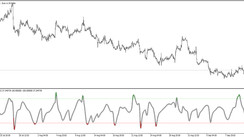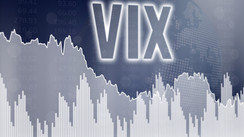In the expansive ocean of the forex market, countless online brokers are vying for your business. As you surf the internet or browse financial news websites, you're likely to be swamped with a deluge of ads and promotional content from various forex brokers, each promising superior services and unbeatable trading conditions.
Choosing the right broker from this plethora can feel like finding a needle in a haystack. But it's a decision that holds immense significance - the right broker can be the wind beneath your sails, powering your forex trading journey towards profitability. The wrong one, on the other hand, can leave you stranded in rough waters.
Regulation
The integrity of your chosen forex broker is of paramount importance in your trading journey. Regulatory compliance forms the cornerstone of this integrity, and should never be compromised. Here are some steps to ensure your broker meets regulatory standards:
Understand the Key Regulatory Bodies
In the United States, two main entities regulate the forex market:
- National Futures Association (NFA): A self-regulatory organization overseeing the futures industry.
- Commodity Futures Trading Commission (CFTC): The body that supervises the commodity futures and options markets.
A forex broker seeking to operate legitimately within the U.S. will be registered with both of these organizations.
Verify Membership and Registration
A broker's flashy website doesn't automatically guarantee NFA membership or CFTC registration. Always ensure you verify their affiliation and registration by checking in the "About Us" section of their website. Legitimate brokers will readily provide their NFA member number and any other relevant regulatory information.
Know Your Global Regulatory Bodies
Every country outside of the U.S. has its own regulatory body, so it's essential to familiarize yourself with these if you're considering an international broker. For instance, in the United Kingdom, the Financial Conduct Authority (FCA) regulates forex brokers, while in Australia, it's the Australian Securities and Investment Commission (ASIC).
Ensure Deposit Safety and Broker Integrity
Never compromise on the safety of your deposits and the overall integrity of your broker. It's crucial to open accounts only with brokers that are regulated by the relevant bodies. Regulatory oversight is your safety net, providing assurance that the broker operates within the legal framework and is held accountable for its actions.
Be Aware of Regulatory Actions
It's worth keeping an eye on any regulatory actions taken against brokers. This can often be found on the websites of regulatory bodies, and will give you a clear indication of whether a broker has been involved in any misconduct or has violated any trading regulations.
Monitor Ongoing Compliance
Remember that regulatory compliance isn't a one-off checkbox; it's an ongoing commitment. Consistent compliance is a sign of a reliable broker, so regular checks on your broker's standing with regulatory bodies can be a wise practice.
By conducting a comprehensive examination of a broker's regulatory compliance, you safeguard your trading capital and foster a trusting relationship with your broker. A dependable and trustworthy broker is a valuable ally in the competitive world of forex trading.
Evaluating Account Features
When choosing a forex broker, a detailed analysis of account features is vital. Brokers differ in the features they offer, and identifying the ones that cater to your specific trading needs can significantly enhance your trading experience. Let's breakdown the key areas:
Assessing Leverage and Margin
Leverage and margin policies vary among brokers, yet they hold an undeniable impact on your trading strategies:
- Understand Leverage: Depending on the broker, you may access varying degrees of leverage in your margin account. For instance, a 50:1 leverage allows a trader with a $1,000 account to control a position valued at $50,000. Knowing your broker's leverage offering helps assess potential trading power.
- Handle with Care: Leverage can be a double-edged sword. It can magnify both profits and losses. Although it's tempting to utilize maximum leverage, cautious use is advisable.
Understanding Commissions and Spreads
The commission and spread structure of your broker directly influences your trading costs:
- Decipher the Earning Model: Some brokers charge a specified percentage of the spread - the difference between the bid and ask prices of a forex pair. Others may operate commission-free, earning from wider spreads. Ensure you understand how your broker earns money.
- Evaluate the Spread: Spreads can be fixed or variable, dependent on market volatility. Wider spreads can make it harder to realize a profit. Trading pairs like EUR/USD or GBP/USD usually come with tighter spreads due to their high liquidity.
Initial Deposit Requirements
The required initial deposit can influence your choice of a forex broker:
- Check Minimum Deposits: Most forex accounts can be started with a minimal initial deposit, sometimes as low as $50. However, each broker sets its own minimum, and this amount may vary across different account types.
- Leverage Implications: Given the power of leverage, the purchasing capacity far exceeds the minimum deposit, making forex trading attractive to newcomers and investors. Understand the implications of leverage on your initial deposit.
Reviewing Deposit and Withdrawal Policies
The ease with which you can deposit funds and withdraw your earnings is a critical aspect of your trading experience:
- Examine Funding Options: Brokers may allow account holders to fund accounts via various methods, including credit card, ACH payment, PayPal, wire transfer, or checks. Choose a broker whose funding options align with your preferences.
- Understand Withdrawal Policies: Withdrawals can typically be made via check or wire transfer, but policies vary. Some brokers may charge a fee for these services.
By meticulously evaluating these account features, you can find a broker whose offerings align with your financial goals and trading strategy. The right account features can make your trading journey smoother and potentially more profitable. Remember, your broker should be a facilitator for your trading endeavors, not a hindrance.
Delving into Currency Pairs
The array of currency pairs a broker offers can greatly influence your trading strategy and potential profits. Here's how to thoroughly analyze this aspect:
Know the Majors
While the forex market offers a wide range of currencies to trade, only a select few command the majority of the attention and provide the greatest liquidity:
- EUR/USD: The Euro and the U.S. Dollar make up the most widely traded currency pair globally.
- GBP/USD: Known as 'The Cable,' this pair involving the British Pound and the U.S. Dollar also sees significant trading volumes.
- USD/JPY: The U.S. Dollar and Japanese Yen pair is another major player in forex markets.
- USD/CHF: This pair involves the U.S. Dollar and the Swiss Franc.
Understand Currency Pair Dynamics
Before you dive into forex trading, it's crucial to understand the dynamics of the currency pairs:
- Liquidity: Currency pairs with higher liquidity typically have tighter spreads and greater price movement. Ensure your broker offers these major pairs to take advantage of the liquidity they provide.
- Volatility: Different pairs exhibit varying degrees of volatility. High volatility pairs can offer significant profit opportunities, but also pose greater risks. It's essential to align your risk tolerance with your chosen currency pairs.
Cater to Your Interests
While the major pairs constitute a significant part of the forex market, your broker's selection should not be limited to them. The broker should offer an extensive selection of currency pairs, including minor and exotic pairs that might pique your interest.
- Minor Pairs: These involve major currencies, excluding the U.S. Dollar, such as GBP/JPY or EUR/GBP.
- Exotic Pairs: These consist of a major currency paired with the currency of an emerging economy, like USD/SGD (U.S. Dollar/Singapore Dollar).
Analyze the Offered Pairs
A broker's assortment of currency pairs is an essential element to consider when choosing a broker:
- Broad Selection: A good broker should provide a wide range of currency pairs to give traders ample opportunities and options.
- Special Interest Pairs: Ensure that the broker offers the pairs which interest you as a trader. A broker's currency pair offerings should match your trading goals and interests.
By ensuring your broker provides a broad and diverse selection of currency pairs, you open up a world of possibilities in terms of trading strategies and profit opportunities. Your broker should serve as a gateway to the global forex market, so choose wisely!
Customer Service Under the Microscope
In the 24/7 world of forex trading, a broker's customer service can play a significant role in your trading success. Here's what to look out for:
Availability
Forex trading is not confined to the traditional business hours, which means your broker's customer service should not be either:
- 24/7 Support: Exceptional forex brokers provide round-the-clock customer service. Ensure your broker's support is available when you need it.
- Weekends and Holidays: Remember, forex markets operate even during weekends and some holidays. Your broker should offer support during these times too.
Accessibility
How easily and quickly you can reach your broker in times of need is a critical consideration:
- Multiple Channels: Check if the broker offers support via various channels like phone, email, and live chat. The more options, the better.
- Live Human Support: Automated responses can't solve all problems. Ensure you can easily speak to a real person if the need arises.
- Quick Response Times: Call or email the broker to gauge their response times. The faster they respond, the better their customer service is likely to be.
Quality
The quality of the support provided is just as important as its availability and accessibility:
- Knowledgeable Staff: The support staff should be well-versed in forex trading to accurately address your queries and concerns.
- Friendly and Patient: Forex trading can be stressful. Dealing with a friendly, patient support team can make a big difference.
Language Support
For non-English speakers, language support is an additional factor to consider:
- Multi-lingual Support: If English isn't your first language, check if the broker offers customer service in your native language.
Additional Resources
Some brokers go above and beyond by providing additional resources to support their traders:
- Educational Resources: These may include webinars, tutorials, and articles to enhance your trading knowledge.
- Market Analysis: Some brokers offer daily market analysis or trading signals to assist their traders.
Remember, exceptional customer service is a mark of a broker that values its traders. The time taken to evaluate a broker's customer service can pay dividends in your trading journey, providing peace of mind and timely assistance when you need it the most.
Scrutinizing the Trading Platform
Your trading platform is your gateway to the forex market, making it a critical factor in your trading success. Here's how to thoroughly inspect it:
User Experience
The best trading platforms offer an intuitive and easy-to-navigate interface:
- Clear Buy and Sell Buttons: The platform should have unmistakable 'Buy' and 'Sell' buttons to prevent costly errors.
- Panic Button: A good feature to look for is a 'Close All Positions' or 'Panic' button, providing a quick exit when necessary.
- Customizability: The platform should allow you to personalize layouts and features according to your trading style.
- Testing: Most brokers offer free demo accounts. Use this to familiarize yourself with the platform's interface before committing any funds.
Tools and Features
A comprehensive suite of tools and features can greatly enhance your trading experience:
- Technical Analysis Tools: These are essential for tracking and predicting market trends. Tools should include charts, indicators, and drawing tools.
- Fundamental Analysis Tools: Economic calendars, news feeds, and market analysis can help you understand the market's underlying forces.
- Automated Trading and Strategy Builders: These allow you to automate your trading and build, backtest, and deploy your strategies.
- Order Entry Types: A variety of order types, such as market orders, limit orders, stop orders, can offer flexibility in your trading.
- Trading Alerts: These can be set to notify you of significant market movements, ensuring you don't miss any trading opportunities.
Reliability and Speed
In the fast-paced forex market, even a delay of a few seconds can cost you. Ensure the platform's performance is up to the mark:
- Reliability: The platform should run smoothly without frequent crashes or glitches.
- Speed: Trades should be executed swiftly with minimal lag or slippage.
- Mobile Trading: Check if the broker offers a reliable and fully functional mobile trading app for trading on-the-go.
Security
Last, but certainly not least, is the issue of security:
- Encryption: The platform should use state-of-the-art encryption to secure your data and transactions.
- Two-Factor Authentication: This adds an extra layer of security to your trading account.
A well-designed, secure, and feature-rich trading platform can significantly enhance your trading performance and overall experience. Spend ample time examining the platform as it will be your primary tool for trading in the dynamic forex market.





